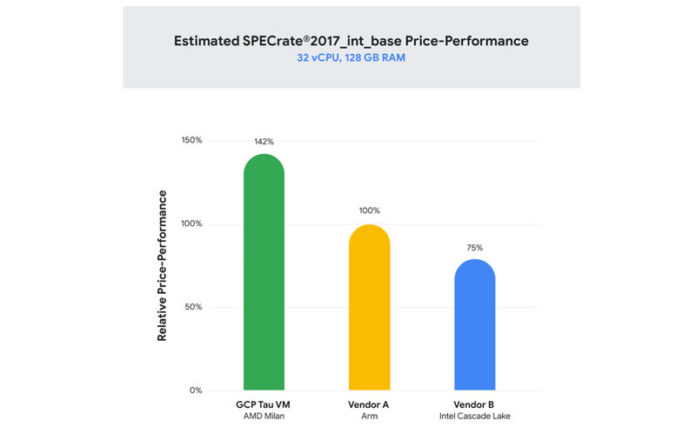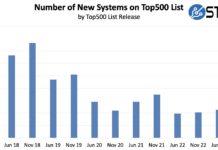Google Cloud Tau VMs are the company’s newest offerings that feature the AMD EPYC 7003 processors. With the new Google Cloud T2D instances, the company is making some bold claims about the performance of its offering versus the competition. Let us get into some of the details.
Google Cloud Tau (T2D) Instances Featuring AMD EPYC 7003 Milan
Google Cloud is not marketing the AMD EPYC powered T2D instances as just being less expensive or offering a large trade-off in terms of performance. Quite the opposite. The “Vendor A” Arm CPUs are pretty easy to guess which vendor markets its Arm-based server offerings as well as the ubiquitous Cascade Lake Vendor B offering. What Google is doing, and that makes it quite interesting, is that Google is using a 32 vCPU and 128GB of RAM level and comparing against offerings. The other quite interesting part here is that Google is using the Arm solution as its baseline, not the Intel solution.
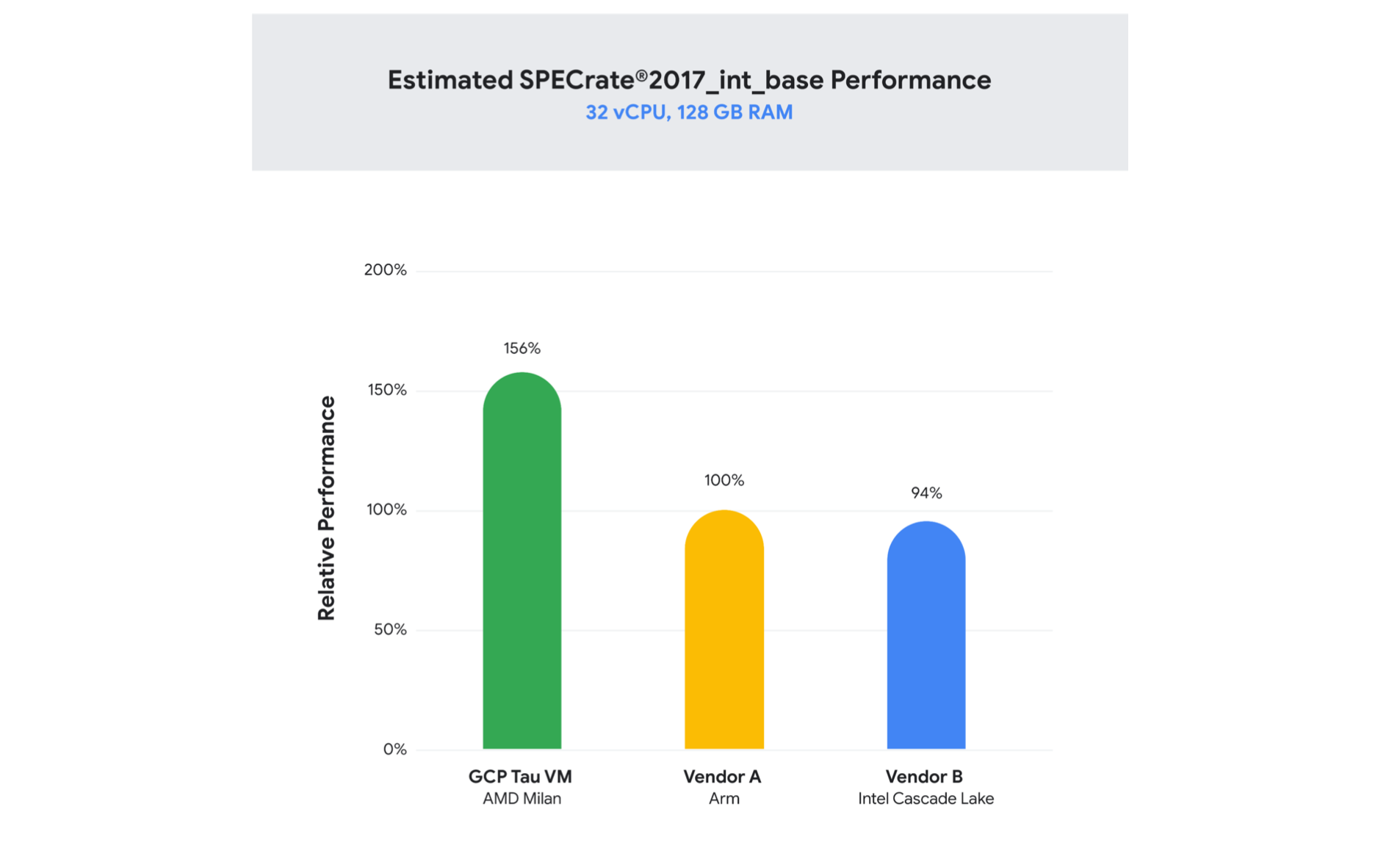
Here we see Google showing the AMD EPYC 7003 “Milan” offering as being 56% faster than the Arm-based solution in the industry-standard SPEC CPU2017 int_rate tests (albeit using “estimated” figures since these are not submitted to SPEC.org.) If one wonders why there is such a big delta here versus what Amazon AWS shows with Graviton 2, again just as an example of a cloud vendor with a public Arm offering not saying who Vendor A may be, there is a simple answer. AWS uses previous generation processors in its x86 comparisons and Google is also using optimized compilers here. As a result of comparing a more modern AMD EPYC 7003 Milan instance, we get a picture like this in terms of price/ performance:
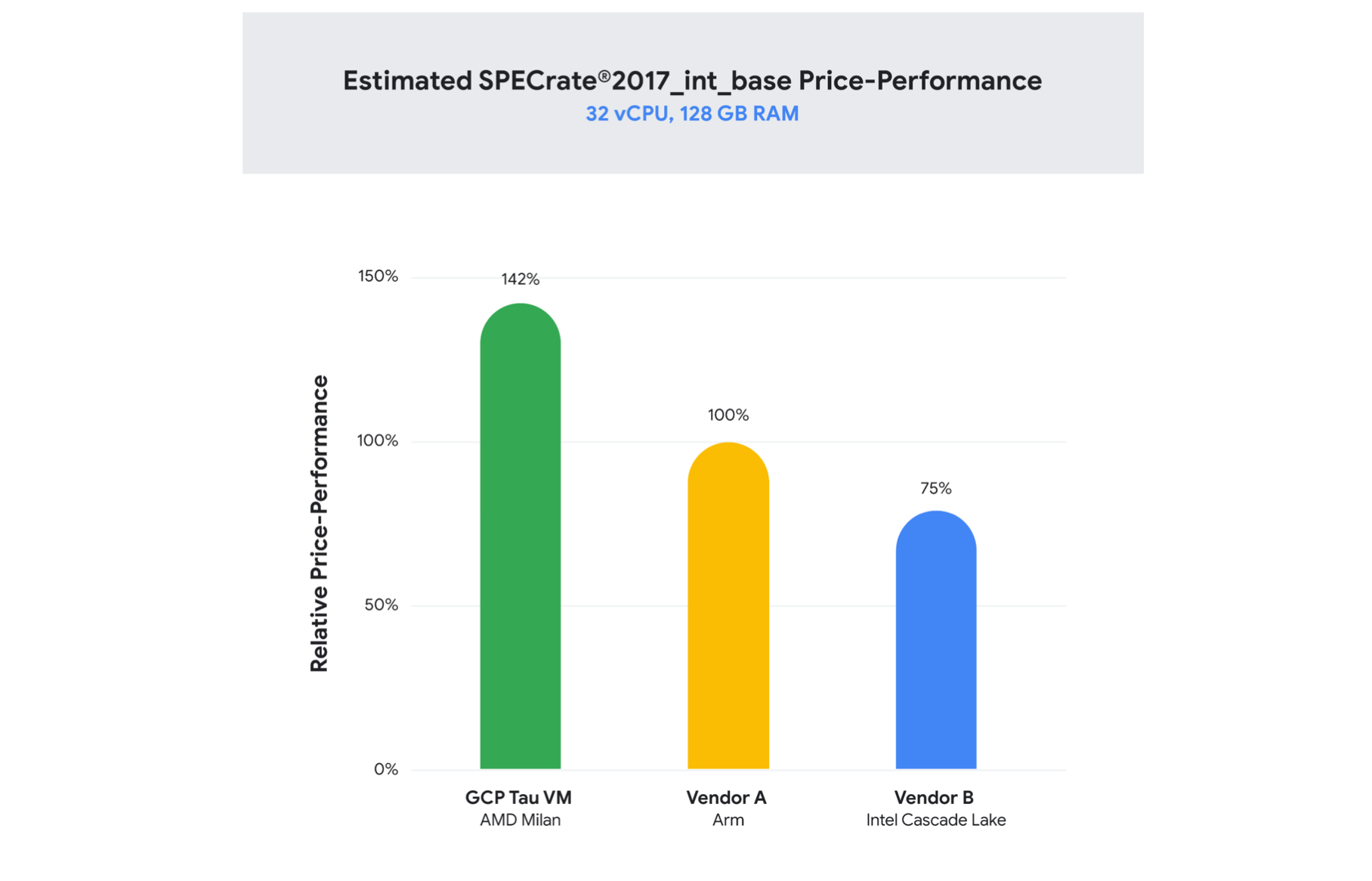
We should note here that the x86 and Arm offerings do get slightly closer here. Perhaps the bigger change is versus the 2nd Generation Intel Xeon Scalable “Cascade Lake” offering where Google is claiming that the T2D instances offer closer to 2x the price/ performance.
Although SPEC CPU2017 is widely used, Google is also showing CoreMark numbers which paint a somewhat similar trend, but with less of an advantage for the T2D instances as well. At the same time, instead of comparing to an Intel x86 previous-generation CPU instance, it is comparing to an AMD EPYC 7002 “Rome” based instance. The significance of CoreMark is that this is a benchmark that is often favored by companies offering Arm processors that feel disadvantaged in SPEC CPU2017 by compilers for x86 processors. While it may just seem like another datapoint here, and the Milan CPUs have less of an advantage, there is context here that is important.
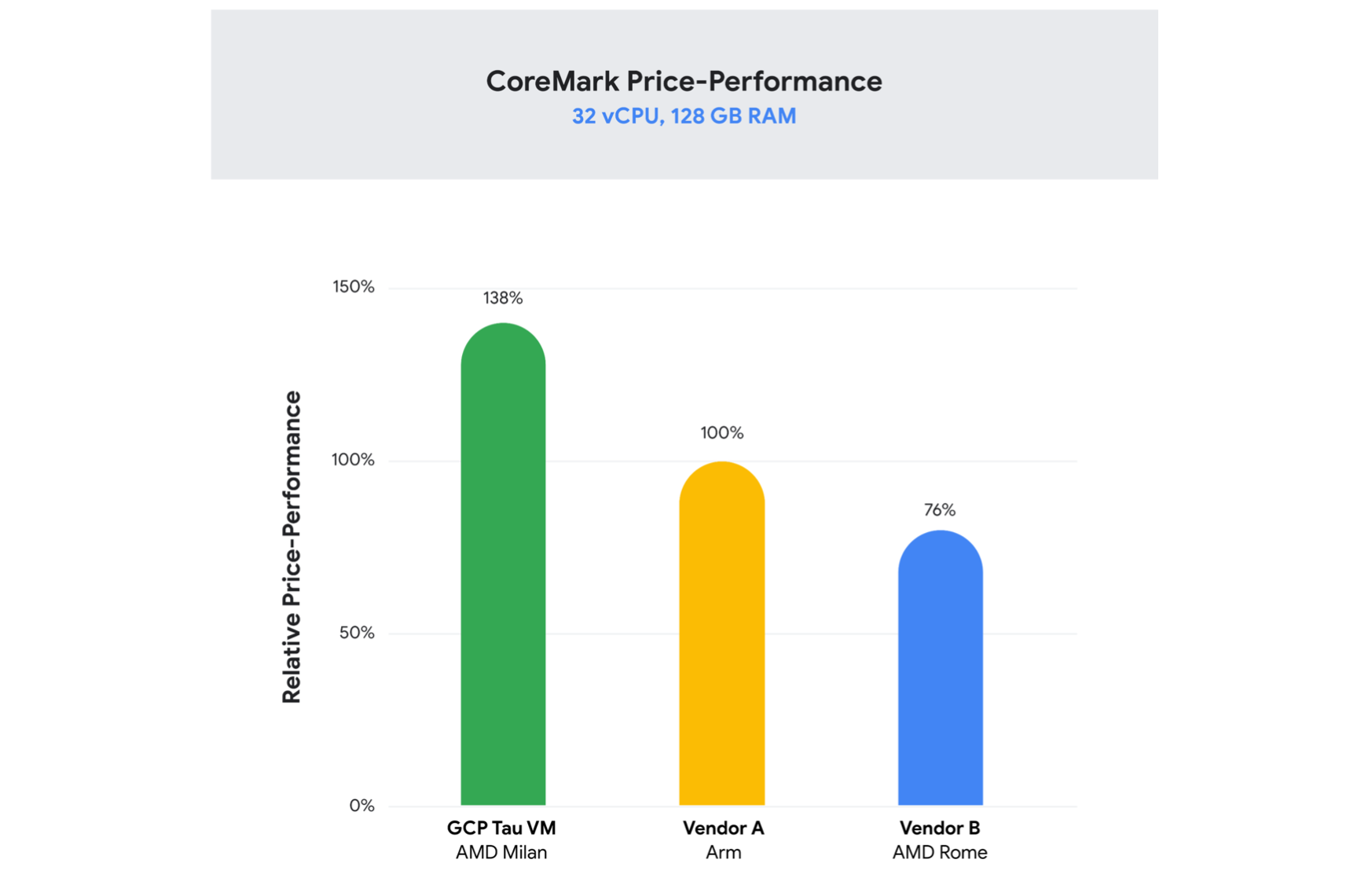
Overall, what is really quite interesting here is that Google is using the AMD EPYC 7003 “Milan” series to go directly at Vendor A’s Arm offering. This is a big deal since Vendor A touts its unassailable benefit from designing and deploying its own CPUs. The other interesting part is that, although Google does not discuss these externally, the company does have Arm-based processors it designs and deploys. As a result, this is a big vote of confidence for the AMD EPYC solutions.
Final Words
The key with this announcement, and any cloud announcement, is that the cloud vendor has a large degree of control over pricing. Companies like Google Cloud or Amazon AWS can choose to price instances however they want since the pricing is often quite disconnected from the underlying costs. Likewise, the cloud providers largely define what a “vCPU” worth of performance is in offerings. Still, with Google showing that it has both an outright performance as well as a price-performance leader by deploying AMD EPYC 7003 Milan in the T2D instances is a big deal for it as well as AMD.

